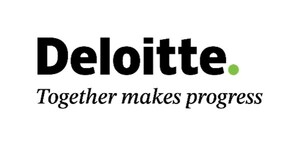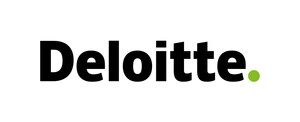
NEW YORK, Feb. 7, 2018 /PRNewswire/ -- In a recent Deloitte Center for Controllership™ poll of more than 1,700 finance, accounting and other professionals, 52.8 percent say their organizations plan digital controllership improvements—leveraging process automation, analytics and other technologies for financial and accounting processes—in the year ahead. Using finance and accounting robotic process automation (RPA) to increase efficiency and internal controls is the top priority for such efforts (34.7 percent).
"Finance and accounting process automation can really run the gamut. Simpler, enhanced finance automation can address common, industry agnostic accounting issues. RPA can build momentum by performing repetitive, manual financial and accounting processes. And, cognitive computing can be configured to adapt to non-routine, industry and organizationally specific needs," said Kyle Cheney, Deloitte Risk and Financial Advisory partner, Deloitte & Touche LLP. "No matter the level of process automation complexity, it's easy to see how efficiency and controls can be improved by well-executed programs."
Poll respondents report that the biggest benefits of implementing a digital controllership strategy include: improved talent resource allocation toward higher value, strategic work by reducing manual, repetitive work (40.5 percent); improved internal controls by testing wider sets of data and reducing human error (23.5 percent); and, improved visibility into future risks and opportunities by testing wider data sets and enabling talent to analyze trends and anomalies (16.9 percent).
"Because bots can work 24/7/365, well-honed RPA programs can help organizations improve the quality of their governance, risk mediation, predictive insights, working capital management and financial reporting," said Dave Stahler, Deloitte Risk and Financial Advisory partner, Deloitte & Touche LLP. "However, digital controllership efforts leveraging process automation really need to start with a good foundation in risk management to keep errors and inefficiencies to a minimum."
Teams starting or expanding finance and accounting robotic process automation programs typically work to manage common risks in areas including:
- Technology – Improper bot design may impact existing IT infrastructure. Conversely, routine IT platform changes may impact automation solutions.
- Regulatory compliance – Automation errors can reduce accuracy of regulatory reports, risking fines and sanctions as well as legal violations.
- Operations – Increased processing errors can be caused by badly designed automation solutions. Lack of effective oversight procedures can lead to increased operational inefficiencies.
- Talent – In times of organizational transformation, morale may suffer if communications to employees don't focus on the higher level work they'll be able to perform with RPA results. Further, access to and oversight of automated processes must be carefully managed to prevent and detect abuse.
- Financial reporting – Poorly implemented finance and accounting robotic process automation can result in inaccurate or incomplete financial reports, financial restatements and reputational damage.
Cheney concluded, "Without strong internal controls, thoughtful change management, consistent oversight monitoring, and well-built bots in production, finance and accounting robotic process automation efforts can cause more harm than good. As with any strategic initiative, trying to find shortcuts is unwise. Investing time and attention to honing RPA is essential to realizing its full potential."
About the online poll
On Dec. 8, 2017, the Deloitte Center for Controllership™ hosted a Deloitte Dbriefs webcast titled, "Process automation: What it means for the future of controllership," that polled more than 1,720 professionals about their organizations' controllership functions. Respondents largely work in accounting (47.7 percent) and finance (25.4 percent). Answer rates differed by question.
About Deloitte
Deloitte provides industry-leading audit, consulting, tax and advisory services to many of the world's most admired brands, including more than 85 percent of the Fortune 500 and more than 6,000 private and middle market companies. Our people work across more than 20 industry sectors to make an impact that matters — delivering measurable and lasting results that help reinforce public trust in our capital markets, inspire clients to see challenges as opportunities to transform and thrive, and help lead the way toward a stronger economy and a healthy society. Deloitte is proud to be part of the largest global professional services network serving our clients in the markets that are most important to them.
Contacts
| Shelley Pfaendler |
|
| Public Relations Deloitte Services LP |
|
| +1 212 492 4484 |
Deloitte refers to one or more of Deloitte Touche Tohmatsu Limited, a UK private company limited by guarantee ("DTTL"), its network of member firms, and their related entities. DTTL and each of its member firms are legally separate and independent entities. DTTL (also referred to as "Deloitte Global") does not provide services to clients. In the United States, Deloitte refers to one or more of the US member firms of DTTL, their related entities that operate using the "Deloitte" name in the United States and their respective affiliates. Certain services may not be available to attest clients under the rules and regulations of public accounting. Please see www.deloitte.com/about to learn more about our global network of member firms.
SOURCE Deloitte







Share this article